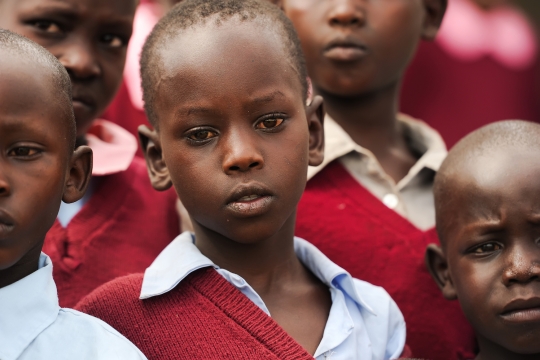Families who receive cash payouts as a result of their participation in wildlife conservation efforts near some nature parks in Zimbabwe have not seen a measurable increase in their accumulated wealth in the past three decades. But new research shows that the benefits of boosted education for their children could indirectly reduce poverty for these households in the long-term, because children are more likely to attend school.
This is the recent finding of Collen Matema, a social economist with the Zimbabwe office of the African Wildlife Foundation and associate of the Environmental Policy Research Unit (EPRU) at the University of Cape Town (UCT).
The Zimbabwe government started the Communal Areas Management Programme for Indigenous Resources (CAMPFIRE) programme in 1987, explains Matema.
Originally the idea was that communities would be involved in wildlife management around parks in Zimbabwe, so that they could benefit economically from ecotourism. The programme was also geared towards reducing poaching pressure on wildlife.
‘This programme allowed communities to lease their communal land to private safari operators as hunting concessions,’ says Matema.
Over the years, this initiative has created a few jobs for communities, mostly through ecotourism opportunities offered by the safari operators and anti-poaching monitoring. But most of the benefit of the programme came from the rental income paid to the community concession holders.
Early on in the programme, this money was initially paid out to individual households in cash dividends. But once the rental money was divided up between all the participating families, the payouts were so small that they did not benefit each household much, explains Matema, so there wasn’t any measurable increase in wealth at a household level. CAMPFIRE was largely regarded as a failure, in terms of not reducing poverty for families.
‘The communities and their local authorities then changed the way they distributed this income. Instead, they set aside at least 70 per cent of the money to be put towards investing in infrastructure for the wider community, such as school buildings, healthcare clinics, and roads. Some of this money was also used to support the running of schools through subsidising children’s school fees.’
In 2016 Matema began to compare the school attendance rates of children in communities who received money to build and maintain schools, as well as school fees subsides through the CAMPFIRE programme, with communities that didn’t. He wanted to see if there was a measurable difference in the age at which children started school, and whether they remained in school.
‘School attendance in these communities that do receive financial support through the CAMPFIRE project was 12 per cent higher than in communities that don’t,’ says Matema.
‘This community conservation model is working, in terms of getting children into school. More and more children are getting to the formal school system at the appropriate age, and are staying in school, relative to their matched peers in non-CAMPFIRE communities.’
Matema’s study found that communities benefiting from the income earned through CAMPFIRE are more likely to be within 5km of a primary school, and 10km of a high school, which makes it easier for children to get to school. Poorer families are also more likely to be able to send their children to school if the school fees were subsidised by this programme.
The take-home message for policymakers, according to Matema, is that using the income earned from these hunting concessions to build and maintain schools, and support families with school fees, has a positive impact on children’s education, even if this programme hasn’t shown a measurable impact on poverty over the years, in terms of boosting household wealth.
‘If we look at the benefits of a programme like CAMPFIRE through the different measures of poverty, such as access to education, it is working.’
Matema completed this research as part of his doctoral studies through EPRU, working alongside fellow Zimbabwean resource economist professor Edwin Muchapondwa, also based at UCT.
